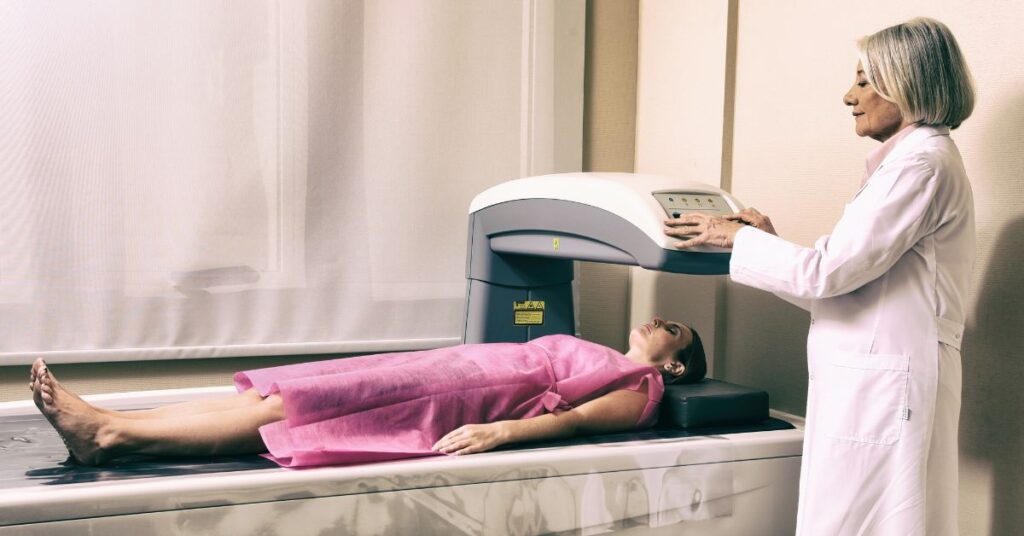Prevent fractures by getting a bone density scan. This technology is proven, reliable and non-invasive.
The bone mineral density test (BMD) is painless and quick. It estimates how dense your bones are by using X-rays and then comparing your results to those of a healthy adult the same age and sex as you.
The test measures how much calcium and minerals are in a part of your bone. Stronger, denser, bones are less likely to break. The lower your mineral content, the greater your chance of breaking a bone in a fall.

Your risk of low bone density is increased if you:
- have an increased risk of developing a bone problem
- have had a broken bone after a minor fall or injury
- have a health condition, such as arthritis
Good Bone Health Starts With Prevention
Besides regular exercise, vitamin D and calcium are both necessary for good bone health and osteoporosis prevention. Without vitamin D, our bodies cannot effectively absorb calcium.

Good sources of calcium include reduced-fat or skim milk, low-fat plain yogurt, Swiss cheese, fortified juices and cereals, spinach and soy foods like tofu and tempeh.
Good sources of vitamin D include mushrooms, eggs, salmon, sardines, fortified milk, cereal and juices and sunlight.
Meet your calcium and vitamin D intake through your diet or by taking supplements. Talk to your doctor about how to include these nutrients into your daily routine.
Who Needs a Bone Density Scan?
How often you should have your BMD measured depends on your age and results of your previous DEXA scan. Women 65 years and older and men over 70, with normal bone mass or mild bone loss, should test every 15 years.
If you are a woman 65 years or older, man 70 years or older, or have broken a bone (had a fracture) since age 50, talk to your doctor about a bone density test. Call 702-9310 or click here.

